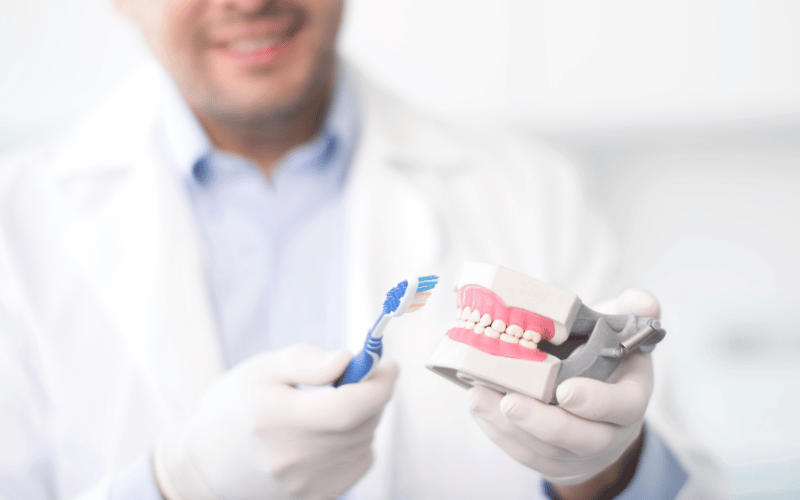10. The Role of Oral Health in Dementia Eating Issues: Not Just a Matter of Clean Teeth

Oral health is often overlooked when considering factors that can impact eating issues in dementia patients. However, it plays a vital role and demands significant attention.
Problems such as tooth decay, gum disease, or ill-fitting dentures can cause discomfort and pain, making eating an unpleasant, even dreaded activity, leading to reduced food intake. Furthermore, individuals with dementia might forget or resist oral care routines, exacerbating these issues.
The connection between oral health and eating issues lies in the basic function of the mouth in the process of food consumption. When the mouth is healthy, chewing and swallowing happen effortlessly.
But when oral health problems arise, these simple actions can become painful ordeals. Additionally, a painful mouth can discourage the intake of certain food types, particularly hard or crunchy foods, which can lead to nutritional deficiencies.
Interestingly, the relationship between oral health and dementia extends beyond eating issues. Poor oral health, particularly gum disease, has been linked to a higher risk of developing dementia. Therefore, maintaining good oral hygiene is not only important for a dementia patient’s nutrition but could potentially slow the progression of the disease.
Addressing oral health issues in dementia requires a multi-faceted approach. Regular dental check-ups are essential, as these can help detect and address issues early.
Daily oral care routines should be encouraged. Techniques such as step-by-step guidance or demonstrating the brushing technique can be beneficial. In some cases, professional dental cleanings or treatments may be required to ensure optimal oral health. (10)